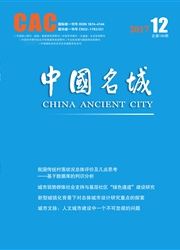

 中文摘要:
中文摘要:
当今世界是一个城市世界,而城市地理学者的首要目标是理解和解释遍及全球的城市环境之复杂性。不过,这一目标的实现因城市地理学学科对象的多样性和动态性而困难重重。本文的首要目标是确定城市地理学的主要研究方法并探讨当前的关键研究议题,以此为未来研究指明方向。本文分为两大部分:第一部分阐释了城市地理学的研究范畴,并从理论和概念角度阐明了城市地理学的各种方法和主题;第二部分从城市地理学角度把其研究领域划分为"城市体系"和"作为体系的城市"两类。前者包含对世界城市、跨国城市体系以及对各种城市化区域的研究;后者包含对城市经济、人类健康、生活质量以及城市可持续发展等的研究。结论认为,在新的世纪中,依其折中视角、综合能力以及坚实的研究积累,城市地理学必将为更好地理解城市环境作出重大贡献。
 英文摘要:
英文摘要:
The contemporary world is an urban world, in which the primary goal of the urban geographer is to understand and explain the complexity of urban envi- ronments across the globe. The difficulty of attaining this objective is compounded by the diversity and dynamism of the subject matter of urban geography. The principal objective of this paper is to iden- tify some of the main approaches to re- search in urban geography and explore current key research themes in order to provide signposts for future research. The paper is organized into two main parts. In the first I explain the scope of urban geography and employ theoretical and conceptual perspectives to clarify the diverse approaches and themes in urban geography. In the second part, I identify key research areas from the perspectives of urban geography as study of "systems of cities" and "cities as systems" . The former includes illustration of research on world cities, transnational urban sys- tems, and different types of urbanized re- gions. The latter incorporates explora- tion of research into the urban economy, human wellbeing and quality of life, and sustainable urban development. It is con- cluded that urban geography with its ec- lectic perspective, synthesizing power, and solid research base is well positioned to make a significant contribution to un- derstanding the complex geographies of urban environments in the twenty-first century.
 同期刊论文项目
同期刊论文项目
 同项目期刊论文
同项目期刊论文
 INDUSTRIAL DEVELOPMENT AND SPATIAL STRUCTURE IN CHANGZHOU CITY, CHINA: THE RESTRUCTURING OF THE SUNA
INDUSTRIAL DEVELOPMENT AND SPATIAL STRUCTURE IN CHANGZHOU CITY, CHINA: THE RESTRUCTURING OF THE SUNA 期刊信息
期刊信息
